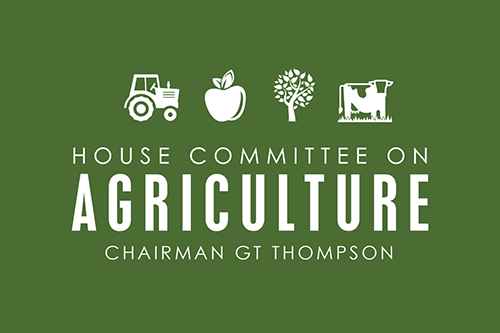NCBA CLUSA submitted a written question to lawmakers ahead of the confirmation hearing for U.S. Secretary of Agriculture Nominee Sonny Perdue, seeking clarity around his familiarity with the economic impact of cooperatives. Perdue is scheduled to testify during his confirmation hearing on Thursday.
Despite his experience in the agriculture industry—Perdue spent most of his career in the agriculture business and once ran a fertilizer company before being elected governor of Georgia—NCBA CLUSA is looking for assurance that, as Ag Secretary, Perdue will contribute to a enabling environment for co-op development—specifically, whether he will maintain and prioritize the work of USDA’s Interagency Working Group on Cooperative Development.
“The goal of the Working Group is to leverage the long-standing expertise of the cooperative model and the USDA to help elevate cooperative issues federally through a whole-of-government approach,” said Alan Knapp, Vice President of Advocacy for NCBA CLUSA. “Cooperative issues and opportunities know no government agency boundaries, and leadership is critical to breaking down sometimes-siloed federal agencies and making continued progress.”
As stated in the current Farm Bill, the Secretary of Agriculture is authorized to “coordinate and chair an interagency working group to foster cooperative development and ensure coordination with Federal agencies and national and local cooperative organizations that have cooperative programs and interests (7 USC 1932(e)(12)).”
NCBA CLUSA worked diligently on behalf of its members, supporters and cooperatives nationwide to secure this provision in the Agriculture Act of 2014 and—since the working group’s inaugural meeting in October 2015—has served as permanent vice-chair, working to ensure that the cooperative voice is cross-sector and united in its engagement with the 13 federal agencies represented on the working group.
The question NCBA CLUSA submitted this week reads, in part, “As Secretary, how familiar are you with the role cooperatives play in economic development and jobs in local communities? Will you commit to the continued work of this Interagency Working Group on Cooperative Development and position it prominently in your department and this Administration?” Read the full question here.
The question also cites the working group’s successes, which include addressing inconsistencies in debt financing eligibility for co-ops with the Small Business Administration (SBA) and making headway on an effort to identify cooperative businesses in the 2017 Economic Census—a move that would end a nearly 20 year-long absence of federally-reported data on co-ops in the U.S.


